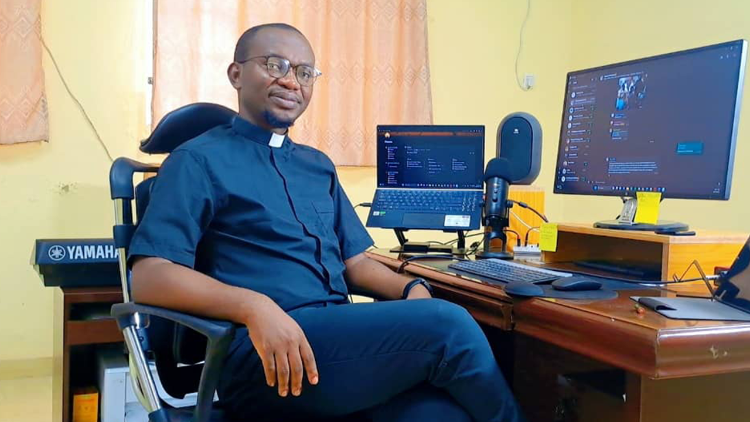
Rise in social media usage among Africa’s young people raises concern.
Sr. Georginia Chidalu Ohalete PHJC - Vatican City.
In an increasingly digital age, Africa’s young people, like elsewhere, are becoming avid users of social media platforms such as Instagram, Facebook, TikTok and others. However, this surge in online activity has raised concerns over the impact on their overall well-being.
Governments may not be prepared to deal with the fall-out given social welfare challenges prevalent in most African countries. Perhaps the Church can help guide young people under its care?
Tools for connecting and engagement
Even with the high personal investment of purchasing a device, high Internet charges, data costs, and state taxes, social media usage in Africa, as elsewhere, is now a necessity and no longer a luxury. For young people, various social media platforms represent an essential tool for connecting, doing business, getting news and information and, above all, for social and political engagement.
Young people are defined by the African Union as those aged between 18 and 35.
Congolese national Fr Joel Nkongolo, a Claretian priest working in Abuja, Nigeria, is an IT expert and a specialist who also analyses social media platforms and trends.
Speaking to Vatican News, Fr Nkongolo said young people need to be encouraged to strike a balance between the real and the virtual worlds and for them to avoid excessive social media usage. They should be protected from the social pressures of feeelings of inadequacy arising from ‘perfect images’ portrayed by peers. There must be a balance between this digital phenomenon’s benefits and potential drawbacks, said the Claretian missionary.
The idea is “to maximise the positive aspects and address concerns in a comprehensive approach involving education and parental involvement,” he said.
With a few taps on the screen
Fr Nkongolo highlights social media’s benefits, including providing young people access to news, educational content, and other resources on various topics. With just a few taps on their screens, young people can explore a world of knowledge and stay updated on current events. This quick and convenient access to information can expand their horizons and encourage intellectual growth.
Fr. Nkongolo further explained that social media empowers young individuals to express themselves and share their ideas and opinions. It provides a virtual space where they can showcase their talents and creativity, whether it is through posting artwork, writing blogs, or creating videos. The platforms enable them to gain recognition and support from their peers, boosting their confidence and self-image and encouraging them to pursue their passions.
Social and political engagement
He explained that some social media platforms are powerful tools for raising awareness and driving social and political change in communities. Young people can use these to promote important causes and advocate for justice. From sharing petitions to organising fundraisers, social media allows youths to mobilise large audiences and make a tangible impact in their online and offline communities.
The young people can also connect with professionals in their desired fields, seek mentorship opportunities, and discover potential career opportunities. Platforms like LinkedIn allow them to showcase their professional skills and build a solid online presence that can open doors to future success.
Addressing the concerns
Nevertheless, social media poses risks and challenges, including cyberbullying, inappropriate content, addiction, and mental health issues.
Fr Nkongolo said it is crucial to mention that while social media offers these positives, there are also potential drawbacks that young people must be cautious of when surfing the net. While the Internet and social media companies should play their part in reducing risk and harm, individuals can do a lot to stay safe. Excessive social media use, for example, can severely reduce face-to-face interactions and lead to mental health challenges. So, adults or guardians of young persons must set time limits and prioritise well-being.
Fr Nkongolo urges parents and educators to play a crucial role in guiding young people’s social media use. They should lead by example and demonstrate responsible social media use themselves.
Encouraging breaks from social media and setting guidelines on screen time can help balance online and offline activities. Promoting critical thinking and verifying information can develop young people’s ability to discern reliable sources. Above all, he suggests face-to-face interactions, which can foster social skills and reduce reliance on online validation.
“Social media platforms should implement age restrictions and provide appropriate content filters to protect young users, particularly minors. Parents need to monitor their children’s online activities and have open discussions about the potential risks,” said Fr Nkongolo.
Church needs to find space in social media
In short, Fr Nkongolo says social media platforms promote connectivity, information sharing, self-expression, social change, and networking opportunities. These are crucial in the development of young people. It would, therefore, be unwise to ignore this whole field, especially for a Church that works with young persons in Catholic schools, religious houses of formation and seminaries.
Though this may only apply to some, if priests and the religious became confident in their own use of social media, they would be able to lead by example and provide mentorship to a younger generation under their charge - including future nuns and priests.
Thank you for reading our article. You can keep up-to-date by subscribing to our daily newsletter. Just click here












